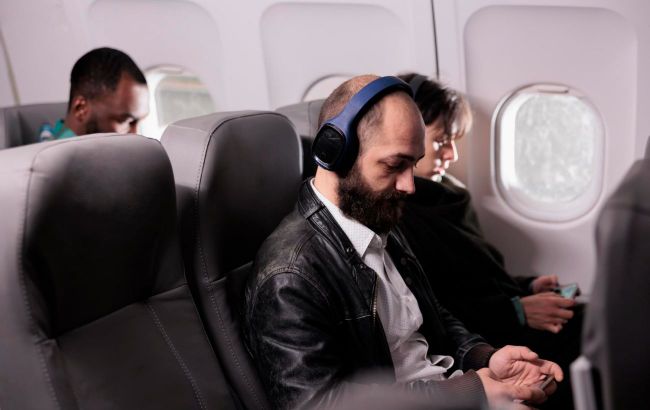Flight attendant explains why you shouldn't sleep during takeoff and landing
 Why you shouldn't sleep during takeoff (Freepik)
Why you shouldn't sleep during takeoff (Freepik)
People usually try to sleep on an airplane to relax and kill time. But it turned out that sleeping during takeoff and landing is unhealthy, according to the Best Life website.
Why you shouldn't sleep
Flight attendant Ale Pedroza says that takeoffs are one of the most important phases of a flight.
During takeoff, it is advisable to be prepared in case of an emergency if you need to evacuate.
She says that there may be a situation where the air pressure in your middle ear and the air pressure in the environment are out of balance, creating stress in your eardrum.
One of the risk factors for airplane tinnitus is sleeping during takeoff and landing. All the while you are not doing anything active to equalize the pressure in your ears, such as yawning.
There are silicone earplugs that have a tiny ceramic filter designed to equalize your hearing more slowly. If you put them in before takeoff and landing, you're less likely to suffer from ear pain.
Another reason to avoid sleeping during takeoff and landing is to be aware of what's going on in case an emergency and passengers and crew have to evacuate the plane.
It is important before a long, tiring flight, to get enough sleep beforehand.
Restrictions on plane
Do not walk barefoot
Airplanes are not disinfected after every flight. And every day they transport millions of people from different parts of the world, and germs with them.
You should also avoid using headphones (sealed packaging does not mean disinfection) or simply touching any things you don't need. While private hospitals have a hard time dealing with bacteria, airlines have an even harder time.
Don't drink too much
It's about alcoholic beverages that you should avoid before a flight.
Alcohol dehydrates the body. It also has a diuretic effect and suppresses the immune system.
Besides, people get drunk faster in the air.
Drinking soda
Pressure drops during a flight lead to increased gas formation in the intestines. Therefore, you should not drink carbonated drinks, as well as champagne, otherwise an awkward situation may emerge.
Sit still for the entire flight
Frequent flyers are at a higher risk of deep vein thrombosis. That is why people with such problems are advised to wear compression stockings.
Also, once an hour you need to get up and walk around a bit. Or, if you are uncomfortable making your way past passengers, you can at least change your position in the seat and bend your knees.

